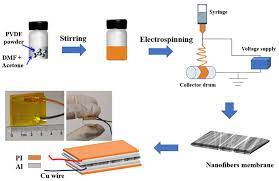Researchers have developed a new model system using lab-grown human skin organoids to study monkeypox virus (mpox) infections. The virus, formerly known as monkeypox virus, caused a major outbreak in 2022, and the use of skin organoids can aid in understanding the virus’s attack on skin cells and discovering potential drugs to combat the pathogen.
The international research team, including scientists from King Abdullah University of Science and Technology (KAUST), demonstrated that stem cell-derived 3D structures called organoids can effectively replicate mpox virus. This breakthrough allows researchers to study the disease-causing mechanisms of the virus and test new therapeutics.
People infected with mpox virus typically develop rashes and skin lesions, which can result in scarring and disfigurement. Through their collaboration with Erasmus MC-University Medical Center in Rotterdam, KAUST scientists discovered that the virus resides within keratinocytes, the primary cell type in the skin’s outer layer. They also observed the virus’s assembly process under high-power microscopes.
Gene expression analyses revealed that numerous viral genes become activated following infection, leading to changes in host cells. These changes affect the activity of multiple human genes associated with immunity and cell death, compromising the skin’s protective barrier and resulting in characteristic lesions.
The researchers found that the antiviral drug tecovirimat effectively halted virus replication and prevented the subversion of host cells in the infected organoids. Tecovirimat, already approved to treat smallpox virus infections, showed promising potential in inhibiting mpox virus as well.
This study validates the inhibitory effect of tecovirimat on mpox virus and highlights the versatility of the organoid system in screening for novel substances with similar properties. It also underscores the significance of understanding mpox infections beyond skin-related issues, as the virus can cause severe damage to internal organs.
The same research team had previously developed a kidney organoid system to study mpox infections in renal tissues, and other groups have investigated mpox dynamics within colon and brain organoids. The collective efforts in utilizing organoid models will aid in combating the current mpox outbreak and enhancing preparedness for future pandemics.
According to Roberto Incitti from KAUST, the organoid system can be extended to study other viral infection systems, further contributing to combating mpox and other infectious diseases
*Note:
1. Source: Coherent Market Insights, Public sources, Desk research
2. We have leveraged AI tools to mine information and compile it




